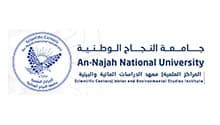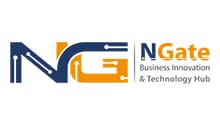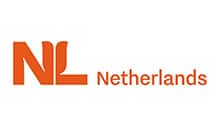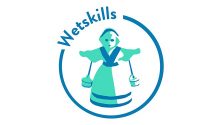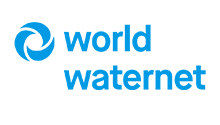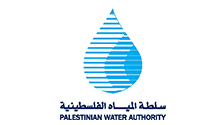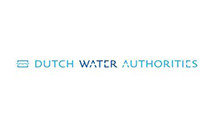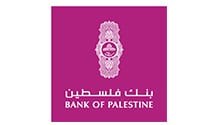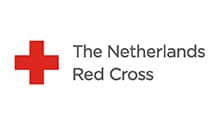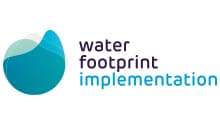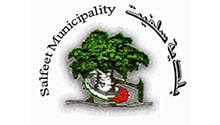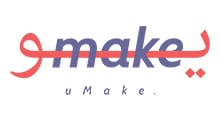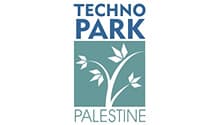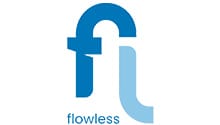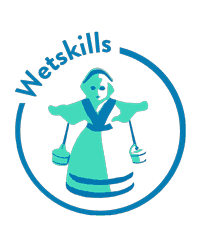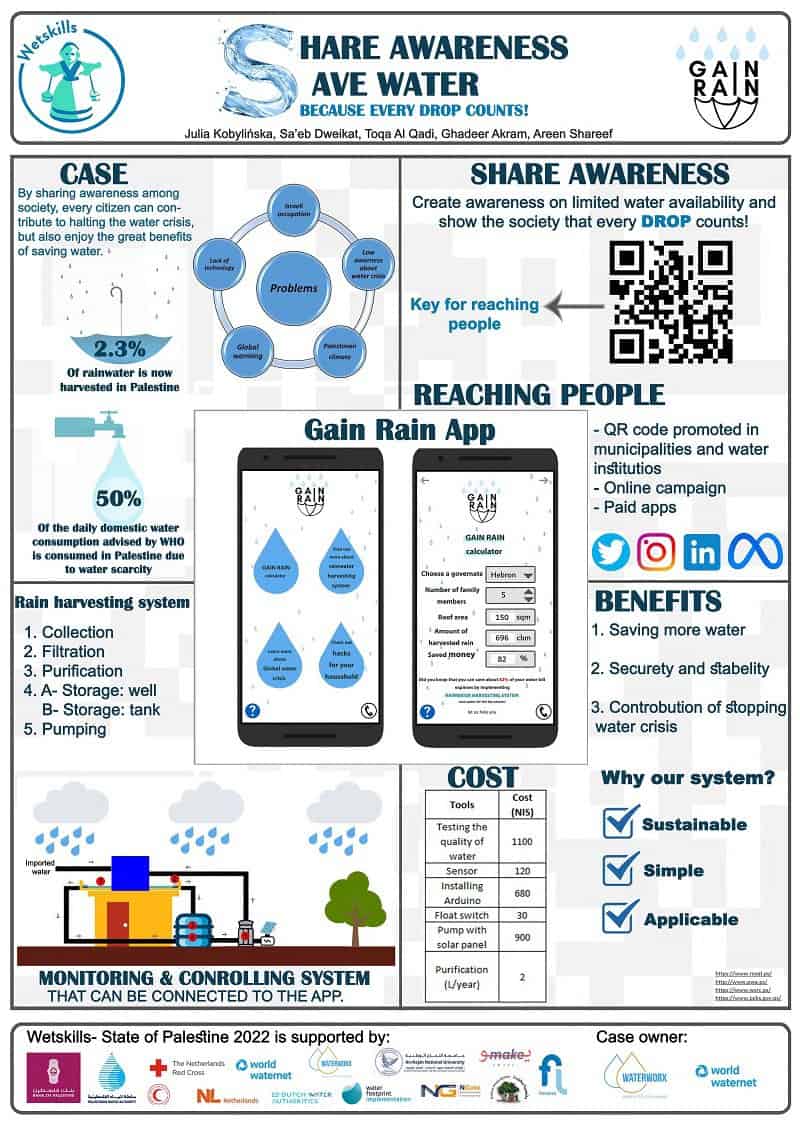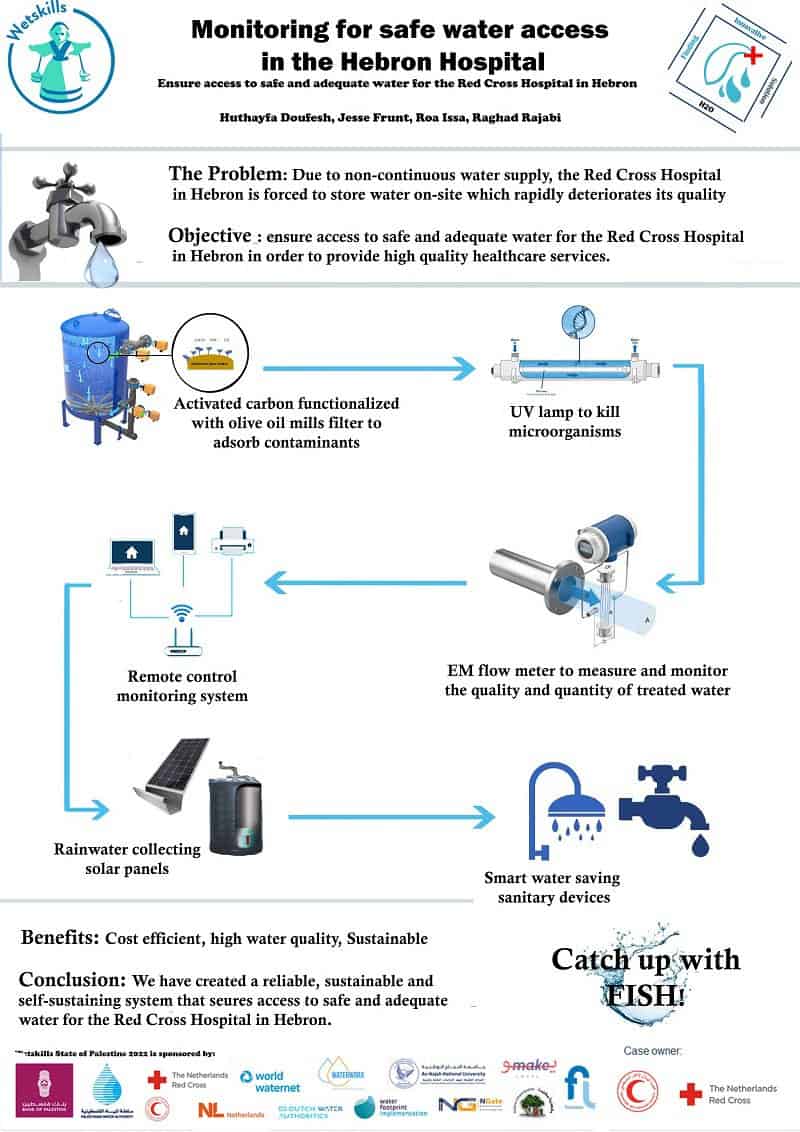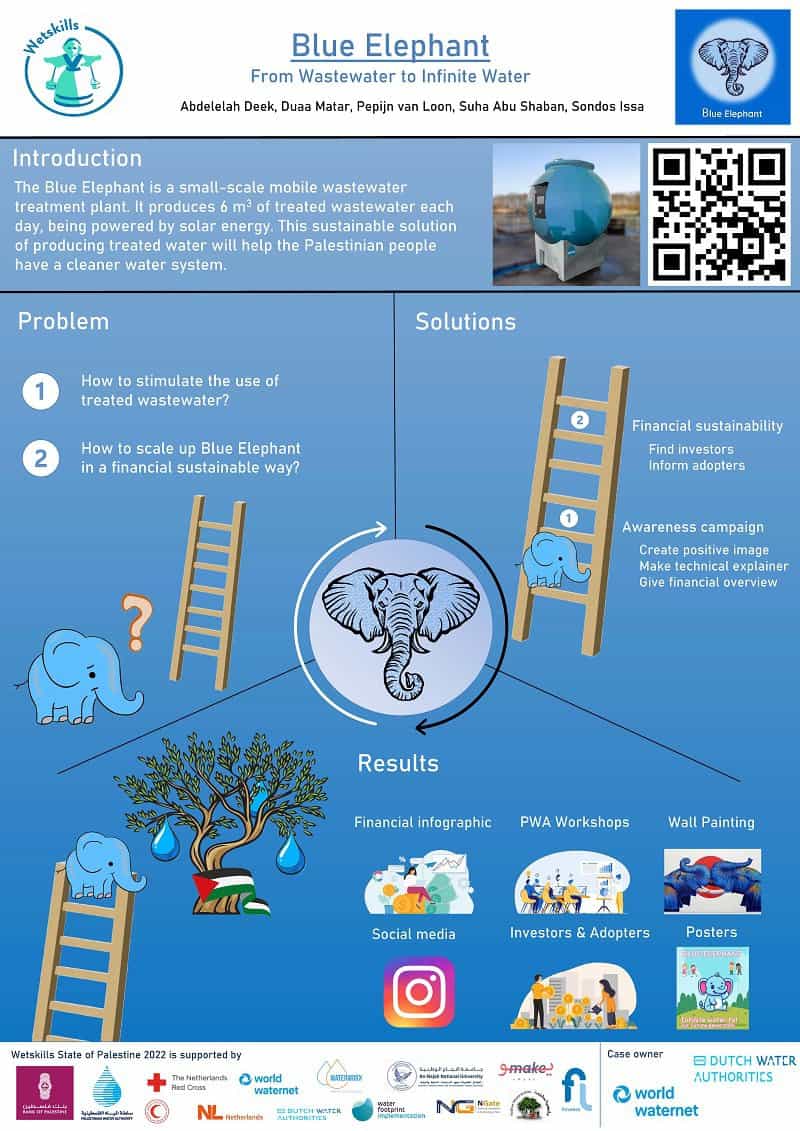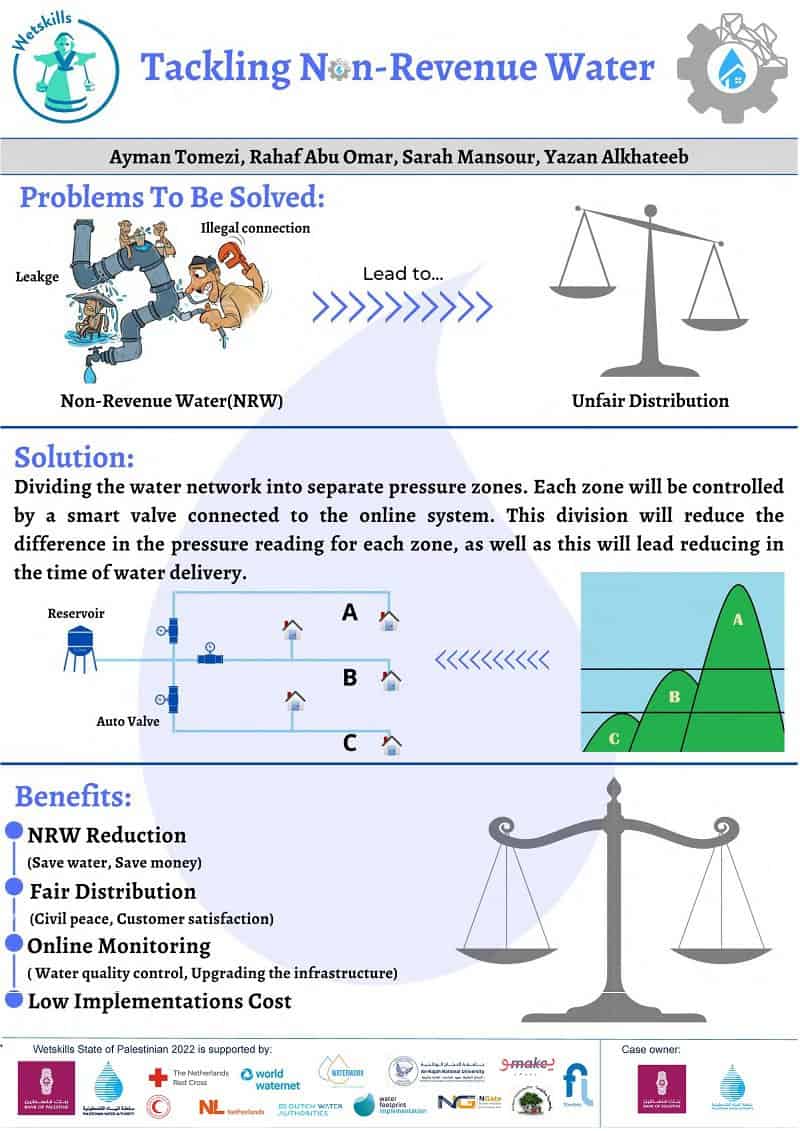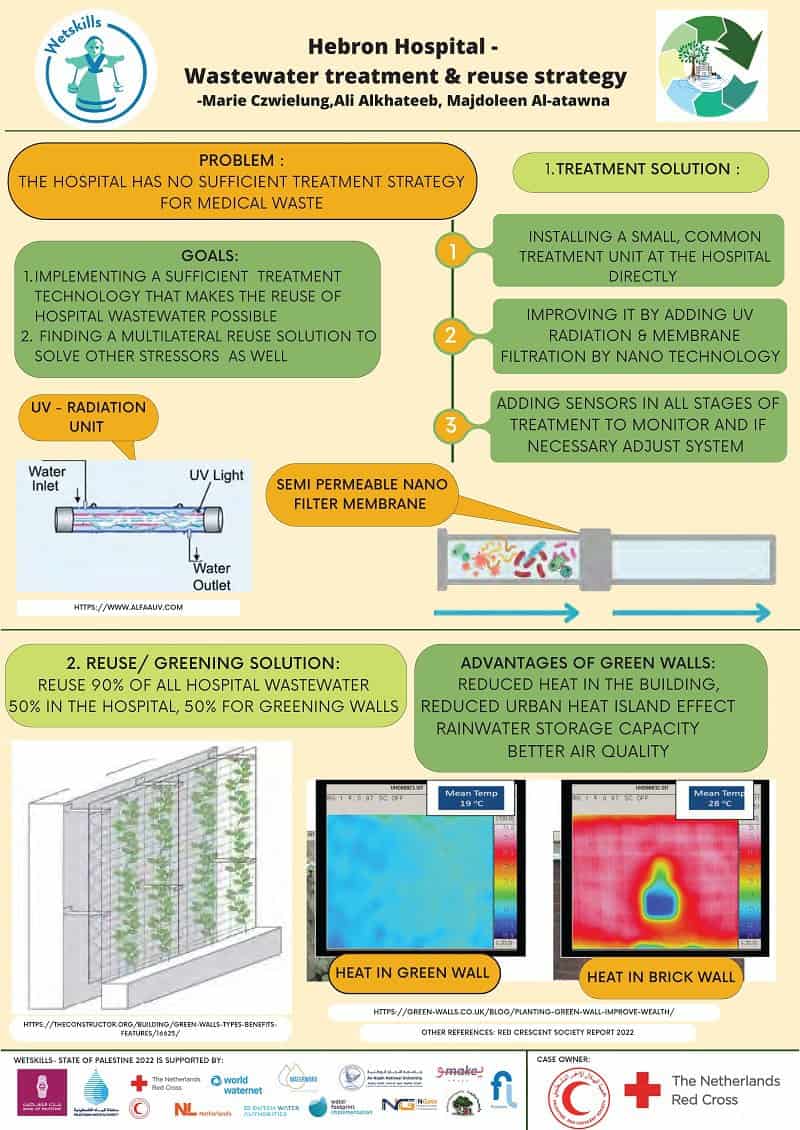
- This event has passed.
Wetskills-Palestinian Territories 2022
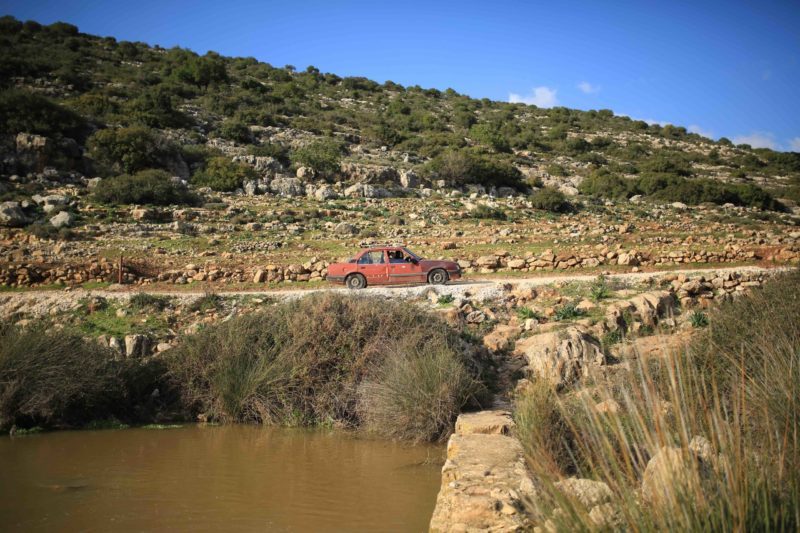

Wetskills for the first time to the Palestinian Territories!!
Have you always wanted to try Knafa (read: melted cheese with lots of sweet stuff)? Do you love wandering around in vibrant historic cities and between centuries-old relics? Do you want to meet people who can tell you everything about this or other cultures? And, most importantly, are you passionate about water and want to contribute to innovate solutions on challenging water issues and keen on meeting and interacting with an international water audience? Participants of this Wetskills Challenge in Nablus, Westbank had a chance to see and experience all this, and more!
This new edition of Wetskills Challenge, the first one in the Palestinian Territories, was organized from 26 August to 6 September 2022. An-Najah University in Nablus (Water and Environmental Studies Institute, WESI) and NGate were our local hosts. The finals were held at the OKP Water Conference, on 5-6 September, where the teams presented their results, and the winning team was be announced and awarded by the jury.
(Photo credits: Salah Hanoun & Nynke Schaap)
Event Video
Event info

A previous Wetskills event in Middle East (Oman)
Follow Wetskills

[no_icons icon_pack=”font_elegant” fa_icon=”fa-facebook” fa_size=”fa-lg” custom_size=”30″ type=”normal” rotated_shape=”no” icon_shadow=”no” inner_border=”no” back_to_top_icon=”” link=”https://www.facebook.com/Wetskills-496271977097972″ anchor_icon=”” target=”_blank” icon_color=”#0076b2″ hover_icon_color=”#43dbbd” margin=”0px 12px 0px 0px” fe_icon=”social_facebook”] [no_icons icon_pack=”font_elegant” fa_icon=”fa-twitter” fa_size=”fa-lg” custom_size=”30″ type=”normal” rotated_shape=”no” icon_shadow=”no” inner_border=”no” back_to_top_icon=”” link=”http://twitter.com/wetskills” anchor_icon=”” target=”_blank” icon_color=”#0076b2″ hover_icon_color=”#43dbbd” margin=”0px 12px 0px 0px” fe_icon=”social_twitter”] [no_icons icon_pack=”font_elegant” fa_icon=”fa-instagram” fa_size=”fa-lg” custom_size=”30″ type=”normal” rotated_shape=”no” icon_shadow=”no” inner_border=”no” back_to_top_icon=”” link=”https://www.instagram.com/wetskills/” anchor_icon=”” target=”_blank” icon_color=”#0076b2″ hover_icon_color=”#43dbbd” margin=”0px 12px 0px 0px” fe_icon=”social_instagram”] [no_icons icon_pack=”font_elegant” fa_icon=”fa-twitter” fa_size=”fa-lg” custom_size=”30″ type=”normal” rotated_shape=”no” icon_shadow=”no” inner_border=”no” back_to_top_icon=”” link=”https://www.linkedin.com/groups/2949484″ anchor_icon=”” target=”_blank” icon_color=”#0076b2″ hover_icon_color=”#43dbbd” margin=”0px 12px 0px 0px” fe_icon=”social_linkedin”] [no_icons icon_pack=”font_elegant” fa_icon=”fa-youtube-square” fe_icon=”social_youtube” fa_size=”fa-lg” custom_size=”30″ type=”normal” rotated_shape=”no” icon_shadow=”no” inner_border=”no” back_to_top_icon=”” link=”https://www.youtube.com/channel/UCJmPNM9roCkR1uvgJMHqpvA” anchor_icon=”” target=”_blank” icon_color=”#0076b2″ hover_icon_color=”#43dbbd” margin=”0px 12px 0px 0px”]
Participants in this Wetskills Event – What do you get?
A unique learning experience where you will tackle real-life water challenges with your own team!
♦ You will increase your skills in: international cooperation; problem solving, cross-cultural and interdisciplinary teamwork, networking and presenting (pitch & poster);
♦ You will get the opportunity to connect with other international water students/young professionals;
♦ You will exclusively be part of the Wetskills finals and awarding at the OKP Conference in Nablus;
♦ You will visit Palestinian water-related, natural and cultural sites, and meetings with water experts;
♦ You will learn, network and experience more about international and regional water challenges, the main stakeholders and organisations, contemporary issues and current business opportunities;
♦ You will receive a certificate of participation upon completion of the program.
Event Blogs

Event Cases

Case 1: Increasing water availability
Case owner: World Waternet (WaterWorX Program)
Water availability in the West Bank is limited and sourced mainly from 3 underground aquifers. The WaterWorX program in the Palestinian Territories is looking for feasible, out-of-the-box ideas to implement and support the overall goal of improved access to water and better human and environmental health. Taking into account the water footprint data available for the West Bank, existing options to save/generate/harvest water in the field and the concept of water footprint compensation, how can we create awareness on limited water availability and come up with practical solutions to save/optimize water use suitable for the Palestinian context?
Case 2: Monitoring for safe water access in the Hebron Hospital
Case owner: Red Cross & Red Crescent
In Palestine, public utilities are responsible for supplying adequate and safe water (good water quality) in a regular basis. However, it’s not the reality on the ground. Therefore, on-site storage of water is a common practice to ensure a continuous access to safe and adequate water. But, the on-site storage of water influences the quality of stored water. Palestine Red Crescent Society (PRCS), part of the International Red Cross and Red Crescent movement provides hospitals, emergency medicine and ambulance services, and primary health care centers in the West Bank and the Gaza Strip, like one in Hebron. Hebron Hospital struggles to maintain a good, consistent, and reliable water quality to ensure quality healthcare services. How can the Hebron Hospital ensure access to a constant and good water quality, which can be transparently monitored by the PRCS staff to monitor?
Case 3: BlueElephant – From wastewater to infinite water
Case owner: Dutch Water Authorities / World Waternet (Blue Deal Program)
In the West Bank, the majority of the wastewater is collected and stored in septic tanks or similar systems, and discharged untreated in the environment. There might be a great potential to treat and reuse this wastewater. To accelerate solving some of the most urgent water challenges a small-scale decentralized and mobile wastewater treatment plant (WWTP) was developed by a public-private partnership of Dutch organisations; the BluElephant. By treating wastewater and making alternative water sources available for agricultural or other types of uses, the BlueElephant technology can also be a method for water footprint compensation. How to stimulate the use of treated wastewater and make the BluElephant technology financially sustainable in Palestine?
Case 4: Smart solutions for water monitoring and loss reduction
Case owner: Bank of Palestine & Palestinian Water Authority
Water scarcity is a harsh reality for the Arab region. As a result, reducing losses from water supply systems is of great environmental importance in the region, but also in other parts of the world. Reducing water losses in drinking water distribution networks is very important from both a social, environmental, and economic standpoint. In Palestine 37.5% is the average of water losses on the national level. When reducing this amount, more water is available for all stakeholders. How can the Palestinian Water Authority with its stakeholders better control water losses and in the same time monitoring the quality and quantity of water for the water distribution systems?
Case 5: Reuse of wastewater from hospitals
Case owner: Red Cross & Red Crescent
Access to clean and well-maintained sanitation facilities is required for quality healthcare service. In addition, proper management of healthcare wastewater is essential to protect the public health. As wastewater from healthcare facilities can contain pharmaceuticals residues, chemical reagents, pathogens, medicines, and other harmful matters, unsafe management of this wastewater can impose significant risks to public health and the environment. The Palestine Red Crescent Society (PRCS), part of the International Red Cross and Red Crescent movement provides hospitals, emergency medicine and ambulance services, and primary health care centers in the West Bank and the Gaza Strip, like one in Hebron. How could the Hebron Hospital improve wastewater management in a more sustainable and cost-effective way to make it safe for the environment?
Event Partners

